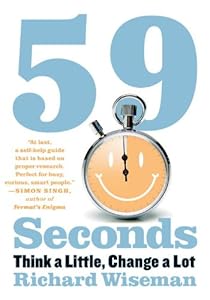 Image via Wikipedia
Image via WikipediaSo what does Warren look at when he's investing?
1) A consistent product - ie. low R&D costs. If the company has to keep investing to change it's product then that means it's in an extremely competitive industry, not a good sign when searching for a company with a durable competitive advantage.
2) Low Debt - looking at the cash flow statement, if a company generates enough cash from operating activities, it doesn't need to finance its investments through debt or equity.
3) Zero Preferred Stock - his theory is that a company with a durable competitive advantage doesn't need to issue stock for capital - they have such tremendous earning power that they have enough to buy back shares, which leads us to our next point.
4) Treasury Stock - this means the company has enough money to buy back its shares and it's sitting there waiting to be reissued.
5) Leverage - Warren stays away from companies that are highly leveraged. Banks borrow at 6% and lend out at 8%, generating earnings for the company. However, once the borrowers start defaulting on their loans, the earnings disappear and the need to pay back the loan is left on the shoulders of the company - a total disaster.
Those were a couple things I took from the book, a quick summary for your benefit. Back to work!
![Reblog this post [with Zemanta]](http://img.zemanta.com/reblog_e.png?x-id=8bc79a7e-cb3f-4101-a6ff-1ebd95a75457)

![Reblog this post [with Zemanta]](http://img.zemanta.com/reblog_e.png?x-id=2539d995-8b58-4008-9e98-002c1942ce71)
![Reblog this post [with Zemanta]](http://img.zemanta.com/reblog_e.png?x-id=bc9dcfc1-d107-4431-a83e-695673abaebd)

![Reblog this post [with Zemanta]](http://img.zemanta.com/reblog_e.png?x-id=8460ff2c-42f4-40aa-b6b2-588db1587011)
![Reblog this post [with Zemanta]](http://img.zemanta.com/reblog_e.png?x-id=8bc085e7-7871-4448-9efe-3e7eca771595)
![Reblog this post [with Zemanta]](http://img.zemanta.com/reblog_e.png?x-id=ed606c00-60fc-42bb-ae78-e3d5605c9bfc)


![Reblog this post [with Zemanta]](http://img.zemanta.com/reblog_e.png?x-id=f535110c-85a0-4e47-b7a3-66f98f06839d)
![Reblog this post [with Zemanta]](http://img.zemanta.com/reblog_e.png?x-id=ead04a77-dac1-4389-b6b4-2fd8a5c1c8b0)